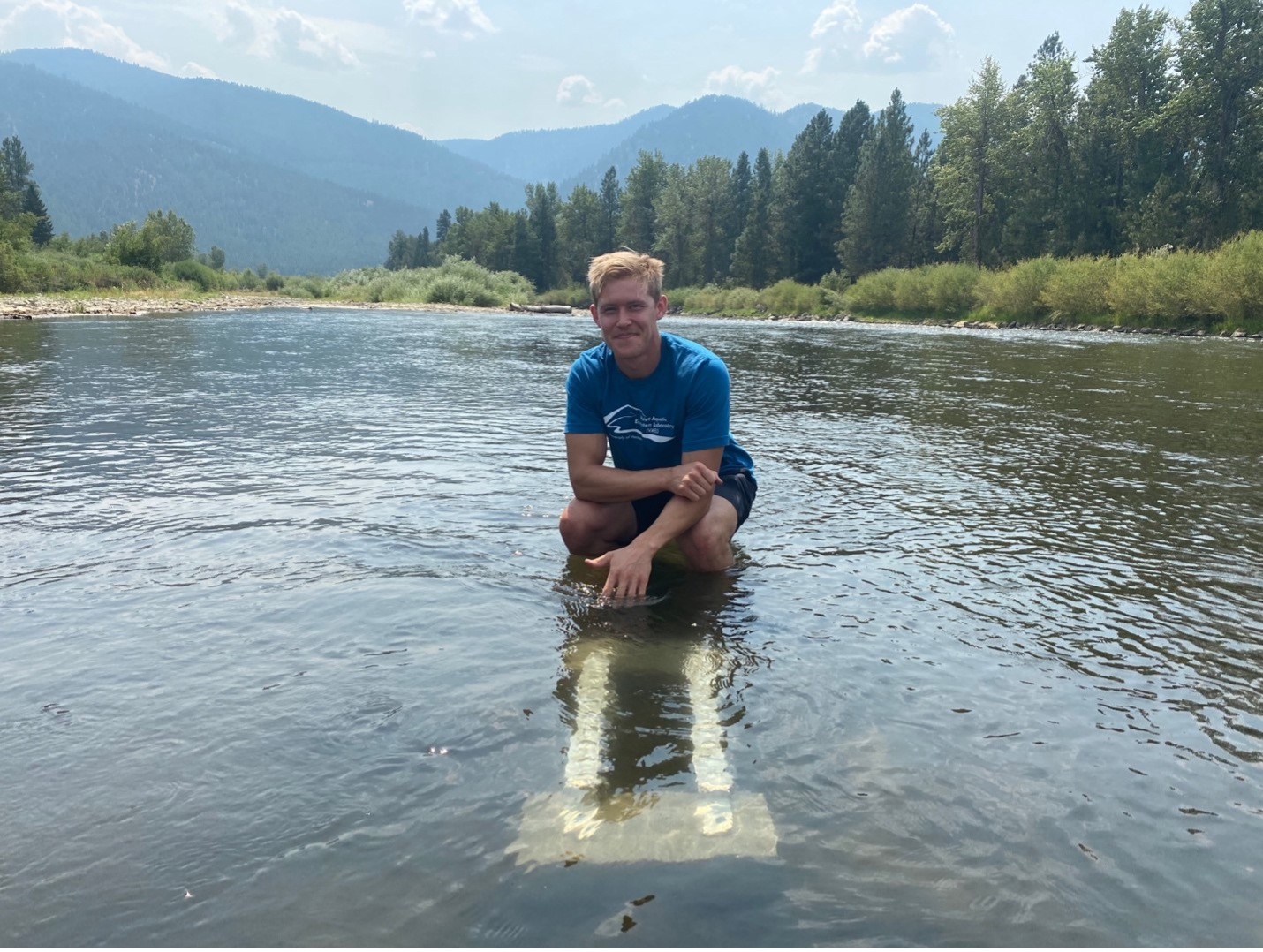Meet Matthew Nichols, an undergraduate student who participated in the 2022 CREWS Undergraduate Research Internship program!
During Summer 2022 (Year 4 of the project), six undergraduate students participated in CREWS research through the CREWS Undergraduate Research Internship program and the National Science Foundation’s (NSF) Research Experiences for Undergraduates (REU) program. These students worked directly with CREWS faculty and graduate students to assist with research on a particular aspect of the project, gain hands-on field and lab experience, and further explore their academic, professional, and personal interests and goals.
CREWS Research Intern: Matthew Nichols
Internship Advisors: Dr. Rafael Feijó-Lima and Dr. Maury Valett

Matthew Nichols is a senior at the University of Montana from Cody, Wyoming. Nichols is studying Environmental Science and sustainability with a minor in Wilderness Studies and Resource Conservation. Beyond his passion for research, Nichols also enjoys weight training, fly-fishing, and backpacking. He is currently involved with CREWS because he was working as a technician in the Valett Aquatic Ecosystems Lab (VAEL; University of Montana) with Dr. Maury Valett. This lab focuses on aquatic ecosystems, so Nichols learned about the REU opportunity and was intrigued by the suite of possibilities in terms of researching the Upper Clark Fork River.
Nichols’ project was aimed at understanding which nutrients limit autotrophic and heterotrophic communities along the enrichment gradient of the Upper Clark Fork River. He deployed nutrient diffusing substrates at four different sites to better understand which element was limiting the growth of algae, namely Cladophora glomerata (C. glomerata). In a separate bioassay experiment, he developed a local riverine microbial community on glass beads and introduced them to site-specific water samples in serum vials to better understand the ability of bacteria to consume dissolved organic carbon under unique nutrient conditions. These conditions included a control, nitrogen, phosphorus, and a combination of nitrogen and phosphorous.
Other people that were involved in the project include Jay Arzate and Abigail League, both of whom are lab technicians that were incredibly helpful throughout the course of Nichols’ research. Faculty involvement included Dr. Rafael Feijó-Lima, a CREWS postdoctoral researcher, and Dr. Maury Valett, research lead of the CREWS Upper Clark Fork River team. Nichols explained that his experience with Dr. Valett has been unlike any other since enrolling at the University of Montana. “Dr. Valett has a genuine interest in fostering intellectual curiosity and guiding it towards productivity,” Nichols says. “I would compare my research experience with the VAEL to any rigorous course offered by the U of M. In contemplating my experience, I feel equipped with the knowledge and tuition to approach ecological research.”
This exciting experience allowed and guided Nichols to find his true passion for environmental science. “I wouldn’t trade it for anything,” he says. He feels especially grateful to have experienced what it’s like to work in the field and lab alongside people with an array of backgrounds, interests, and knowledge, which provided him with many unique perspectives. He says that he “will cherish the memories of working with colleagues, and mentors alike, for the rest of my life.”